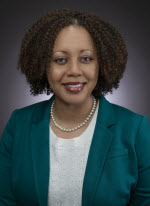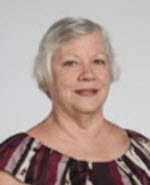|
Editor’s Note: This conversation is based on an original study published in the Journal of Hospital Librarianship in June 2022.
Tanisha: Welcome to our discussion of the featured article: a write-up of my project for the 2019 Research Training Institute (RTI). Here with me are fellow hospital librarians and esteemed colleagues, John Mokonyama and Mary Pat Harnegie. John, would you like to kick things off?
John: I liked the introductory presentation of the paper because the problem is clearly described and defined. The paper is specific and precise on what it is trying to find or solve. A discussion on the integration of librarians’ contributions and how that meets the needs of Graduate Medical Education (GME) could further strengthen the paper.
Tanisha: I really appreciate that feedback. It took some effort to sculpt the problem into a question that I was personally keen to answer. Truthfully, this came from wondering whether I had the capacity to adequately support research for a budding GME program in my "new" hospital librarian role. Thankfully, participating in the RTI program gave me the means to produce an empirical response -- for myself and others in the profession.
I’m never opposed to highlighting librarian contributions to GME. Yet, I was already beating myself up for being long-winded at 11 pages! A current review article on the topic would make for compelling reading, though.
Mary Pat: What core competencies are necessary to increase librarians’ research capacity?
Tanisha: That’s something I would also like to know, and I hinted at that as an aspirational goal in the study limitations section. An established set of core competencies for health sciences librarian research capacity would have been the foundation of the survey instrument developed for this project.
Aside from developing a composite from existing assessments of various research facets, I would look to the MLA Competencies for Lifelong Learning and Professional Success. Evidence-based practice and research are evaluated by five performance indicators in Competency 5. The accompanying self-assessment provides users with a solid idea of where they stand in terms of fundamental research capacity proficiency.
John: How can the data in the study and evaluation methods be improved, so that a high-quality, appropriate, and practical study be undertaken?
Tanisha: While this was an initial report, I concur that data quality and evaluation methods could be improved for subsequent research. Primarily, let’s address the survey instrument.
This study used a composite questionnaire, which drew upon the validated Research Capacity and Culture (RCC) tool,(1) and other questionnaires with varying degrees of review/testing: the Research Activities of Librarians survey,(2) “Understanding Factors that Encourage Research Productivity for Academic Librarians,”(3) and “A thematic analysis of the role of the organisation in building allied health research capacity.”(4) Items were selected to reflect evaluation within domains of the ResCap framework as presented in my article.
Over a handful of librarian-researchers were asked to anonymously pre-test the composite instrument, but full validation of this (or another) questionnaire is something that I noted in the study limitations of the discussion section as a future objective. Additionally, including a qualitative component in the instrument would collect invaluable data to yield deeper insight. For example, something of an aggregate “SWOT analysis” of GME/hospital librarians’ ResCap could be performed by asking respondents to describe strengths, weaknesses, opportunities, and threats to performing original research.
Mary Pat: Your research showed that academic librarians are more likely than non-academic librarians to have a mentor-mentee relation that supports their involvement in scholarly publication. Many non-academic hospital librarians are solo librarians, who often wear many hats. Do you think that being a solo librarian impedes their research capacity?
Tanisha: Thanks for affirming solo hospital librarians who continue to endure a tumultuous professional landscape. Unfortunately, the demographic data captured by this instrument did not specify the number of colleagues (if any) in the workplace, so there is no way to isolate their responses to compare with others.
Despite interest and personal potential, I would presume that focusing on research capacity is one more “hat” to be added to those already worn by solo hospital librarians -- one which may have to be stored in the closet in favor of those with higher priority. If a positive research culture does not exist at their hospital, these librarians probably have strong representation among the respondents with professional mentor-mentee relationships.
The article’s conclusion offered some suggestions for professional collaboration, but nothing specific to GME librarians. I can now say that some MLA members are involved in jump-starting a Slack group, offering an opportunity for us to connect: GMELibrariansGroup.Slack.com. I encourage every hospital librarian -- whether serving GME programs or working solo -- to network more across the profession. And don’t forget to publish original research about it!
Tanisha: Thanks so much, Mary Pat and John, for the opportunity to hear and discuss your thoughts about this article. It’s been an honor and a pleasure!
1 Holden L, Pager S, Golenko X, Ware RS. Validation of the research capacity and culture (RCC) tool: measuring RCC at individual, team and organisation levels. Aust J Prim Health. 2012;18(1):62–67. doi:10.1071/PY10081. PMID: 22394664.
2 Lessick S, Perryman C, Billman BL, Alpi KM, De Groote SL, Babin TD Jr. Research engagement of health sciences librarians: a survey of research-related activities and attitudes. J Med Libr Assoc. 2016 Apr;104(2):166–73. doi:10.3163/1536-5050.104.2.015. PMID: 27076808.
3 Hoffmann K, Berg S, Koufogiannakis D. Understanding factors that encourage research productivity for academic librarians. Evid Based Libr Inf Pract. 2017;12(4):102–28. doi:10.18438/B8G66F.
4 Golenko X, Pager S, Holden L. A thematic analysis of the role of the organisation in building allied health research capacity: a senior managers’ perspective. BMC Health Serv Res. 2012 Aug 27;12(1):276. doi:10.1186/1472-6963-12-276. PMID: 22920443.
Author Bio

Tanisha Mills, MLIS, AHIP
Tanisha N. Mills serves as medical librarian at Northeast Georgia Health System, where she supports evidence-based practice, clinical/consumer health information needs, and research activity across the spectrum of hospital-based specialties, as well as a growing graduate medical education (GME) program. Her professional career spans 15 years in academic and medical librarianship with experience in information literacy instruction, collection development, basic Science/Nursing/Oncology-focused services, and community engagement. She is an active member of the Medical Library Association and was selected as a 2019 Research Training Institute Fellow.
Tanisha earned a Master of Library and Information Science degree, with a medical concentration, from the University of Pittsburgh’s “iSchool” as part of an Institute for Museum and Library Services (IMLS)-funded fellowship. She also holds a Bachelor of Science degree in Neuroscience and Behavioral Biology from Emory University. Originally from St. Thomas, U.S. Virgin Islands, Tanisha has been spoiled by some of the best beaches in the world. She is a proud “science nerd” and enjoys experiencing world cultures through travel, food, music, and documentaries.
Contributor Bios

John Mokonyama, MS, MBA, MSLS, AHIP-S
John Mokonyama has over 20 years of library experience in teaching, research, health science, and working in academic settings. He earned his master's degree in Global Development Economics, Master of Business Administration (MBA) in Health Administration from Eastern University, and a master's in library science from Clarion University of Pennsylvania. He holds a Healthcare Informatics certificate from Drexel University, and he has earned MLA’s Data Services Specialization Certificate. John has recently been selected as one of the 2023 participants of the Medical Library Association Research Training Institute (RTI) for Health Sciences Librarians.
John is current chair of Nursing and Allied Health Resource Service (NAHRS) DEI Task Force and Domain Hub Delegate for Public Health/Health Administration Information Management. He is a Senior Member of the Academy of Health Information Professionals (AHIP) certified by the Medical Library Association (MLA). He has served on numerous professional associations committees since 2012 and he is an active member of the MLA’s Liberty Chapter and the Mid-Atlantic Chapter (MAC).

Mary Pat Harnegie, MLIS, AHIP(D)
I maintain two positions within my institution: #1. Library Manager, South Pointe Medical Library, Cleveland Clinic South Pointe Hospital, 2010-present, #2. Medical Librarian III, Cleveland Clinic Floyd D. Loop Alumni Library, 2003-present. I participated in the 2019 MLA-RTI cohort. I am a peer reviewer for two medical journals, editor of the International Libraries column for the Journal of Hospital Librarianship, and president of the Ohio Health Sciences Library Association. I specialize in performing systematic reviews. My passion is conducting and promoting research in library and medical arenas.
DCT Featured Article – May 9, 2023
|